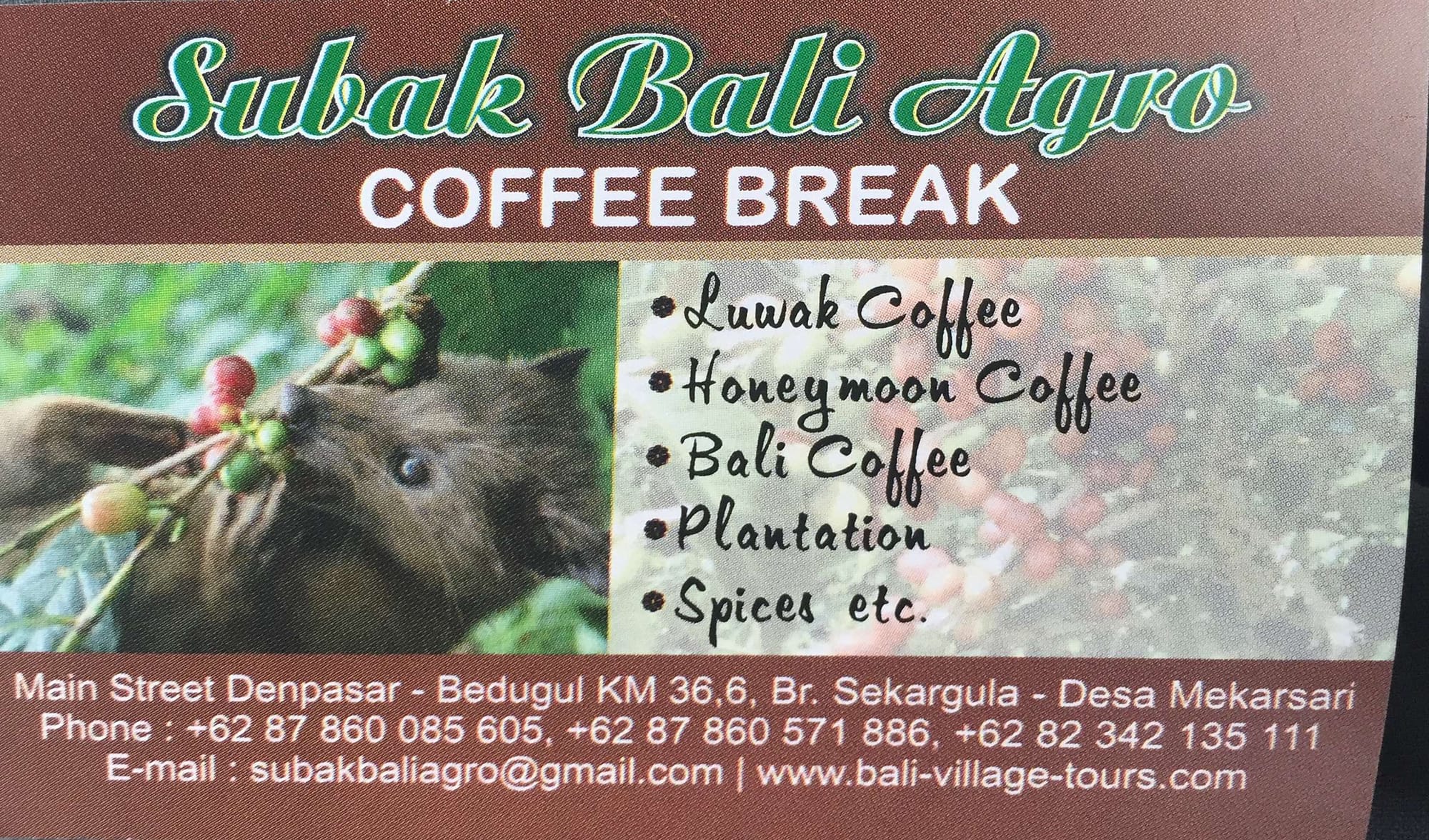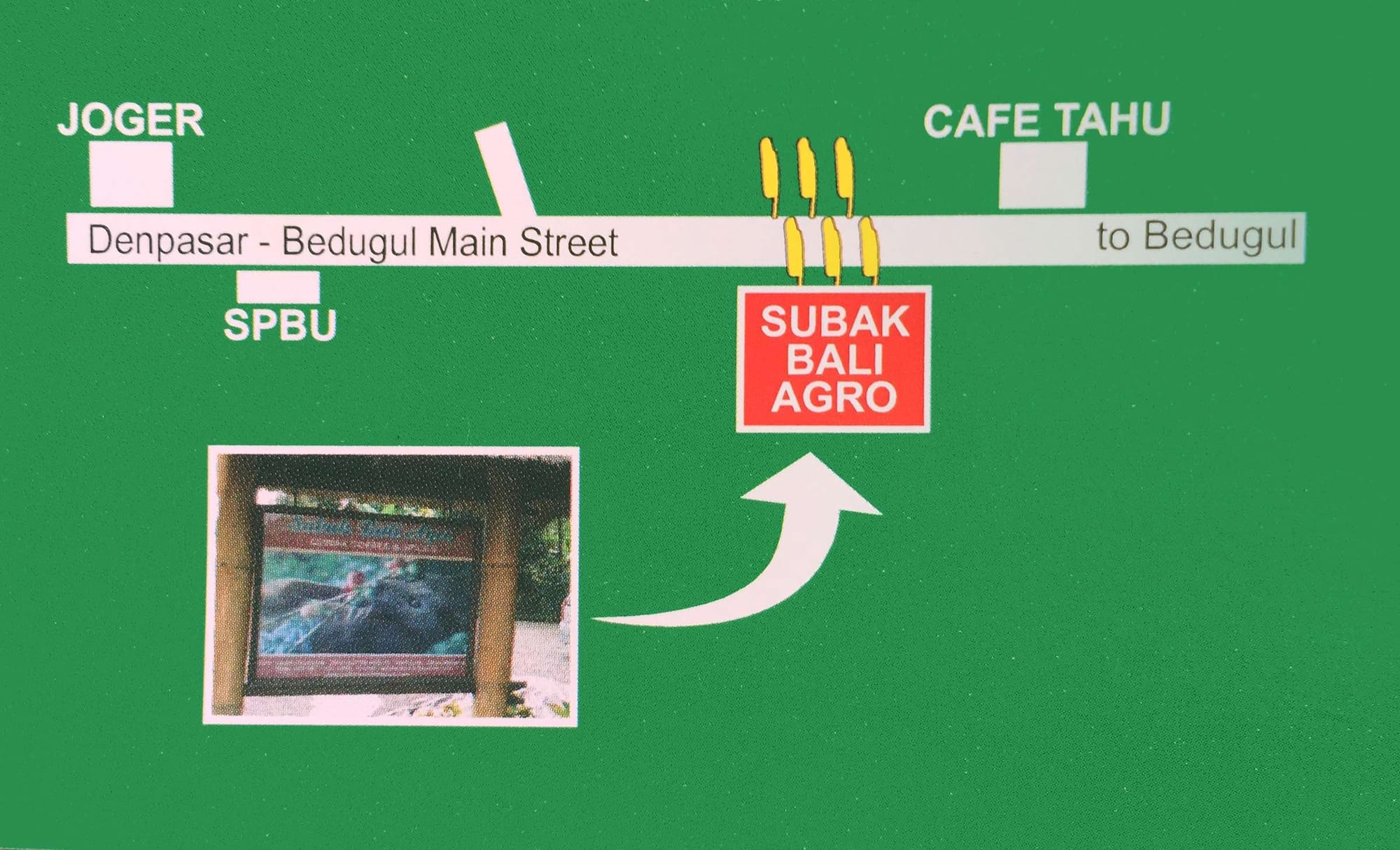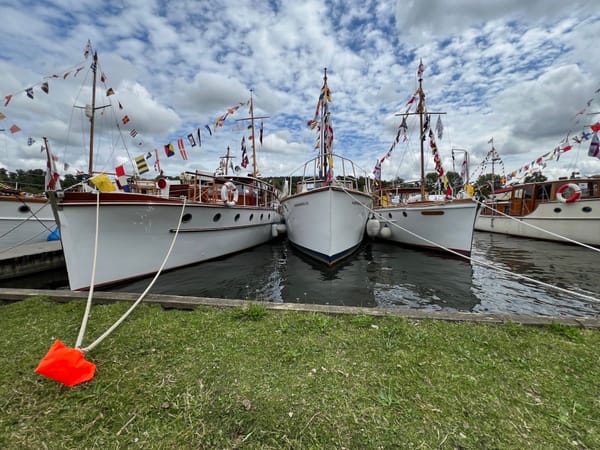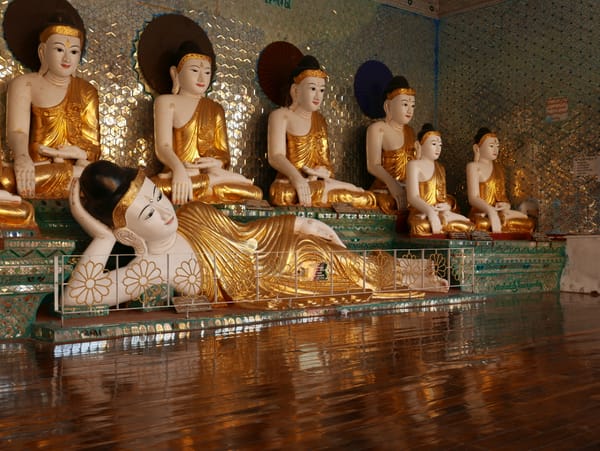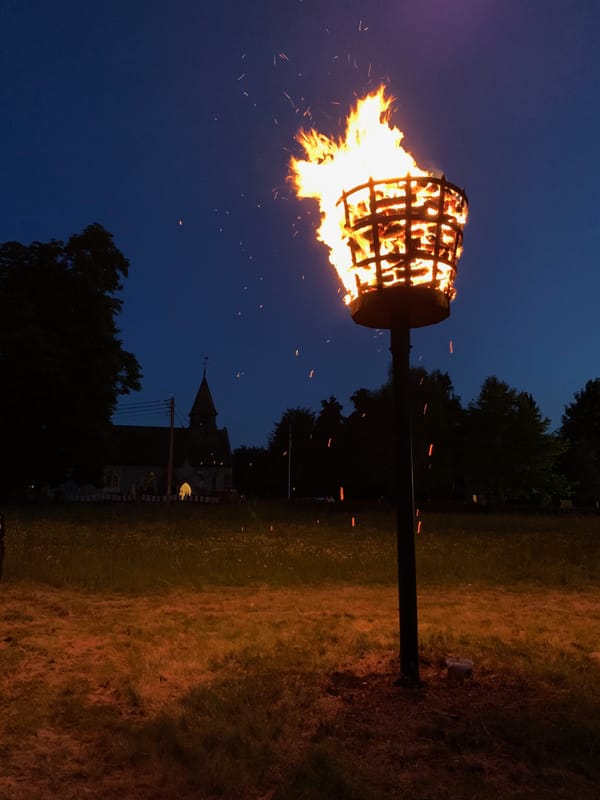Bali — Coffee Luwak Luwus, Bali, Indonesia
Would you drink a Luwak (Civet) Coffee?
August 2015
While travelling around Bali, I saw many signs for ‘Coffee Breaks’ advertising Luwak Coffee. I had no idea what these were, and then the Ubud Taxi driver suggested we stop at one.
I was dubious about the whole thing. I was familiar with the Luwak Coffee scam, but as it turned out, it was a very informative and fun stop.
Luwak Coffee, also known as Civet Coffee, is made from coffee beans pooped out by Civet Cats.
The argument goes that the cats select the best, the sweetest, beans to eat, and the digestion process improves the flavour of the coffee.
The problem with the idea that this process produced a better-tasting coffee came from when the cats were in the wild and could select the beans. Now the Civet Cats are in captivity and given the beans to eat.
We stopped at Coffee Luwak Luwus (card below). While I had no interest in the Civet coffee, it turned into a fascinating and educational visit as I also got to tour the garden and have a guide explain to me what I was looking at (I’m not good at plants).
As I entered the ‘garden’ at the start of the free tour, I was shown a coffee plant (below), and the process of growing and producing coffee was explained.
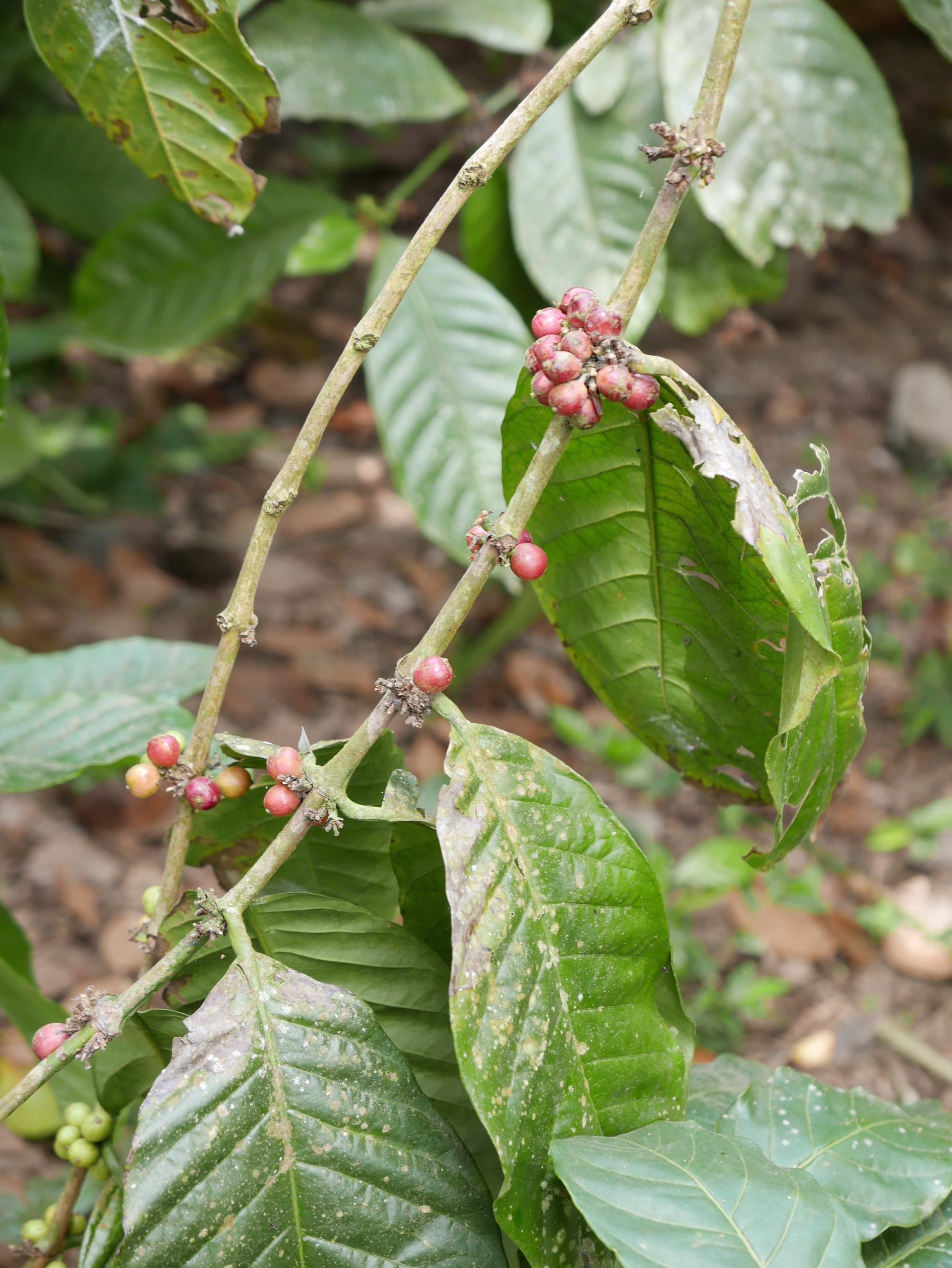
The coffee plant has male and female berries, with the female berries containing two beans and the male (also called a peaberry) one. The photo below shows a female berry on the left and a male on the right.
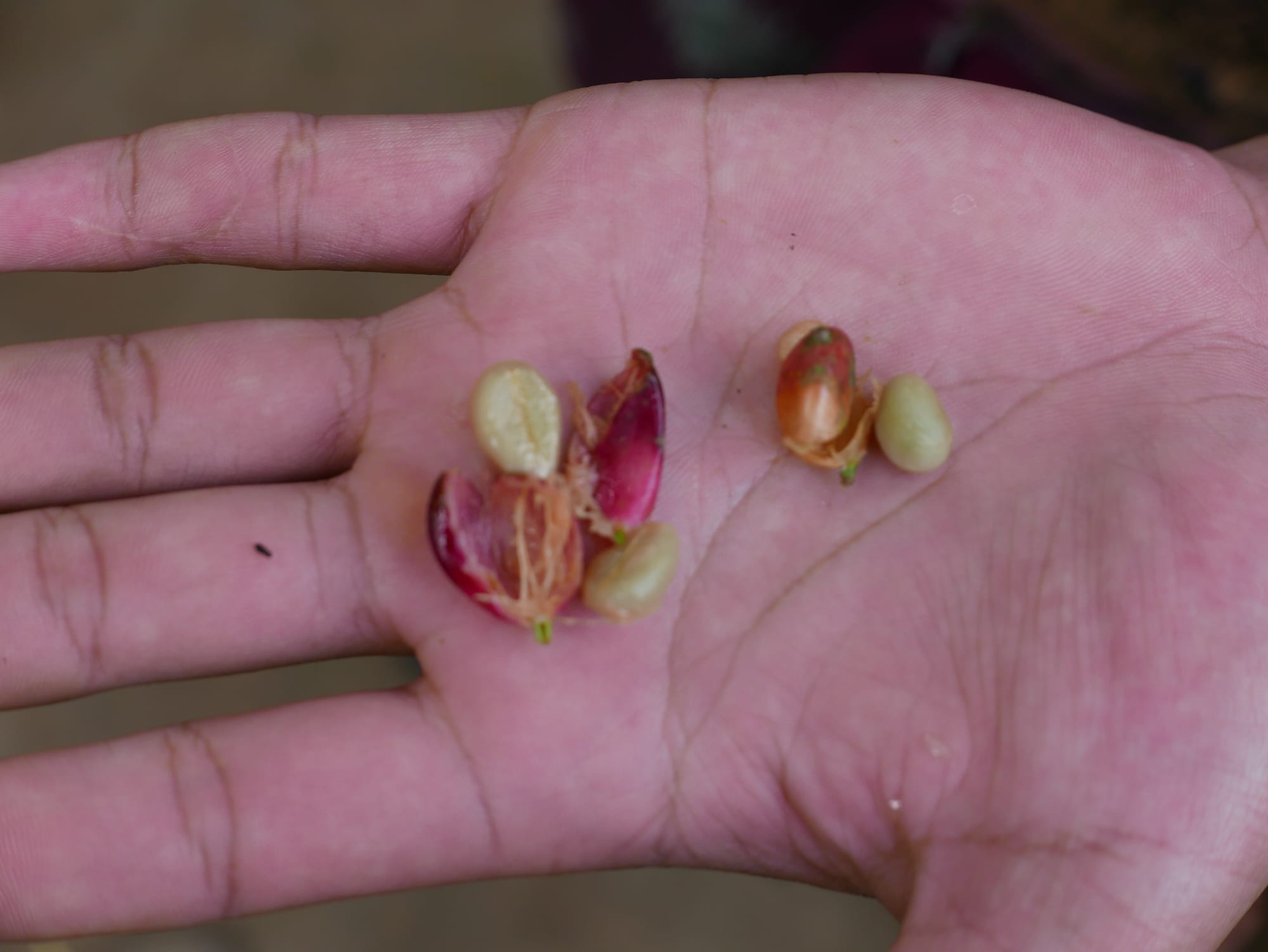
The image below shows my guide with a young Civet Cat. The older animals are too wild to be handled.
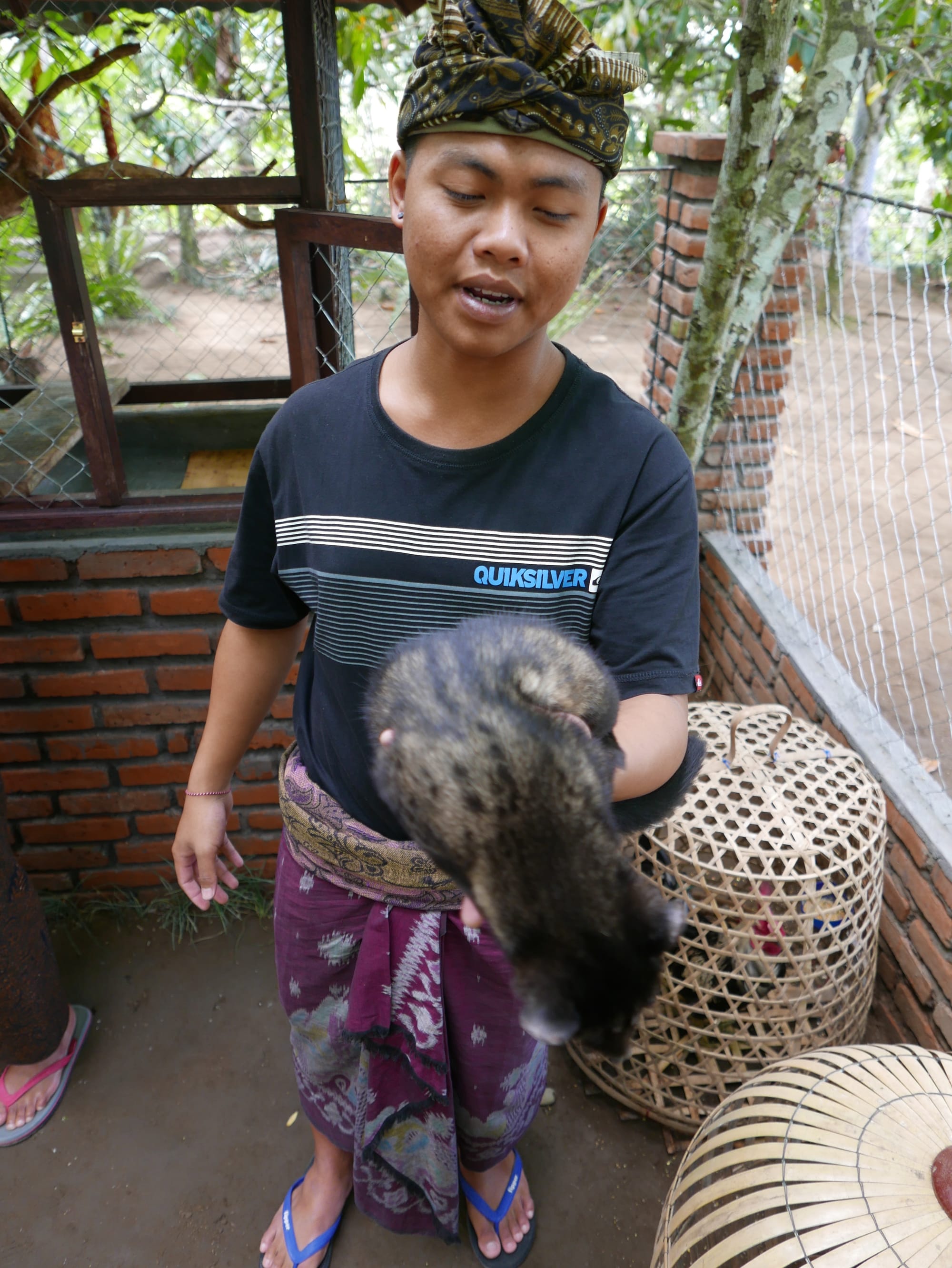
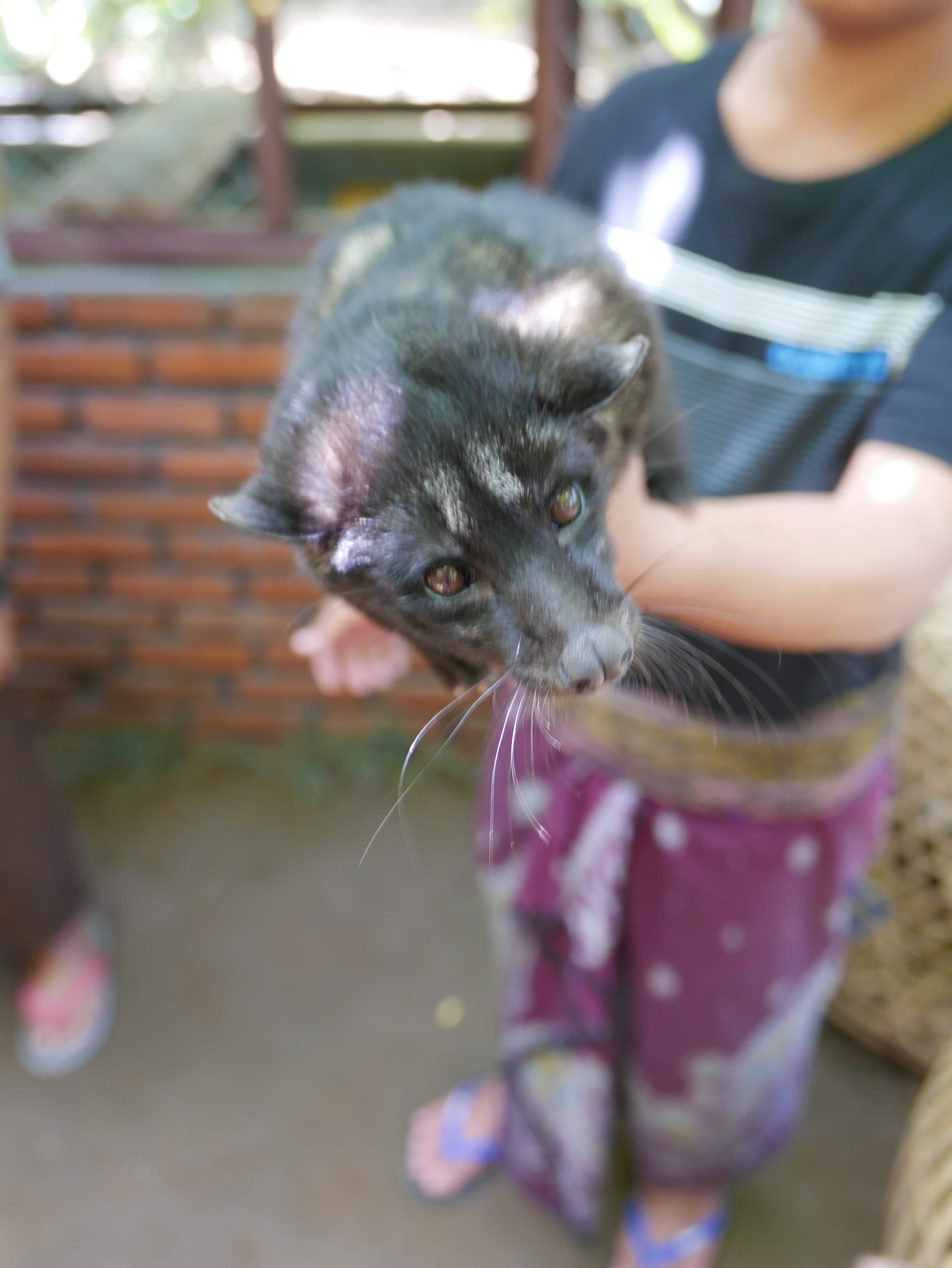
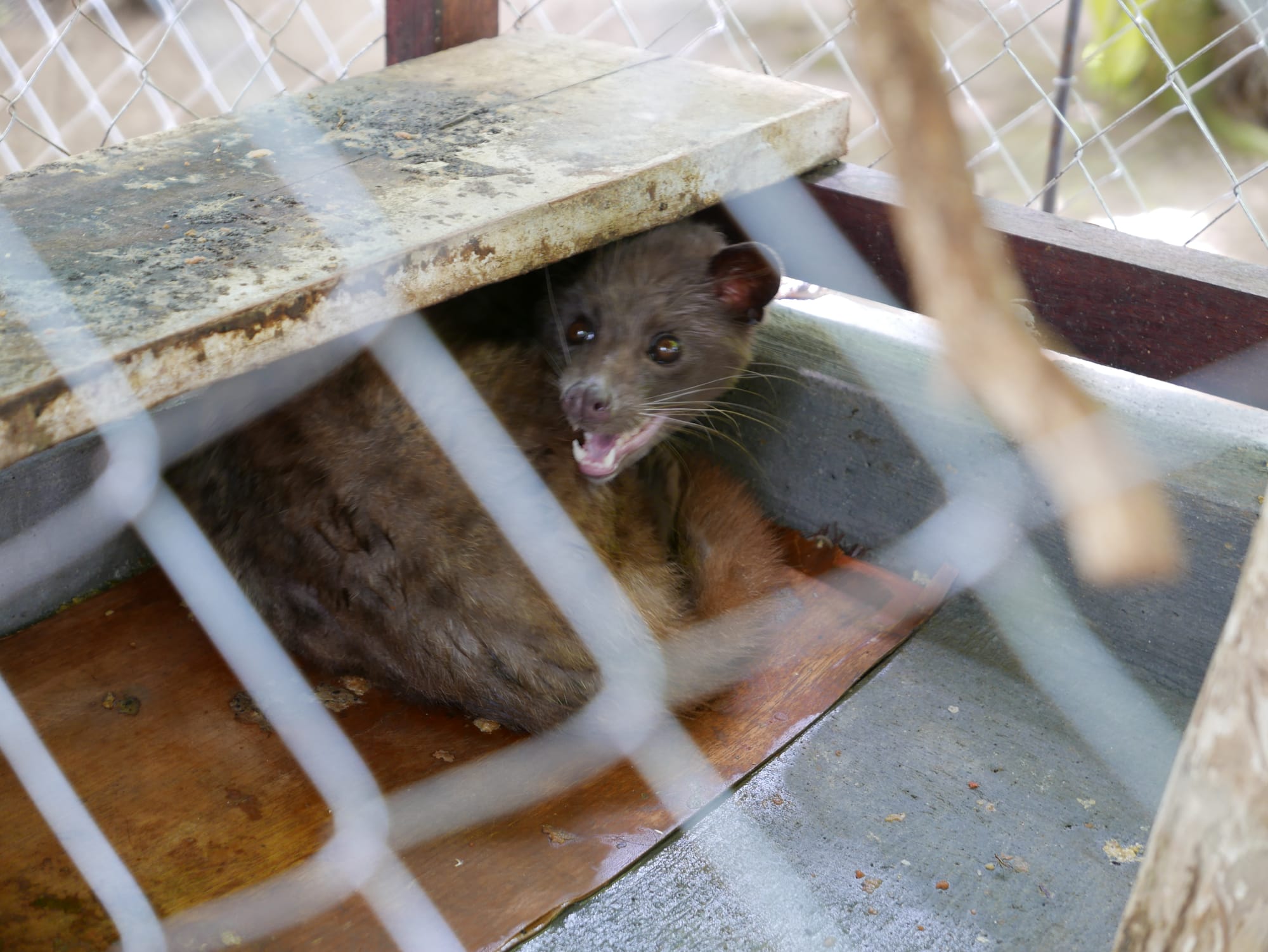
Coffee berries are fed to the Civet Cats, and the resulting coffee bean poop is collected. The poop is shown below — it contains a lot of coffee beans.
The ‘poop beans’ are put through a series of washing and drying steps (it is these steps that most probably give the coffee a milder flavour and not the passage through the intestinal tract of a Civet Cat) before being roasted.
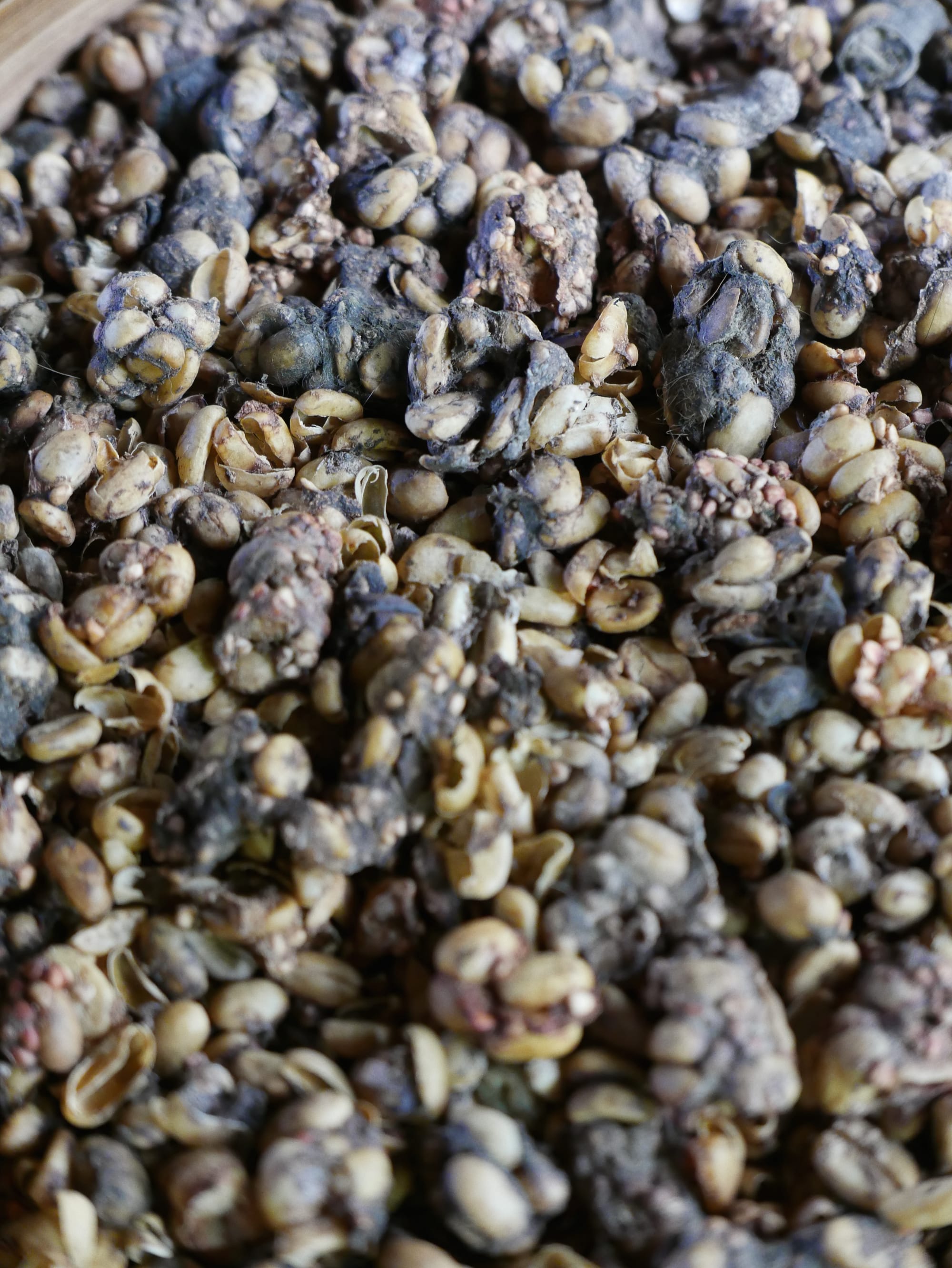
The dried ‘poop beans’ were roasted by continually moving them around in a hot pan.
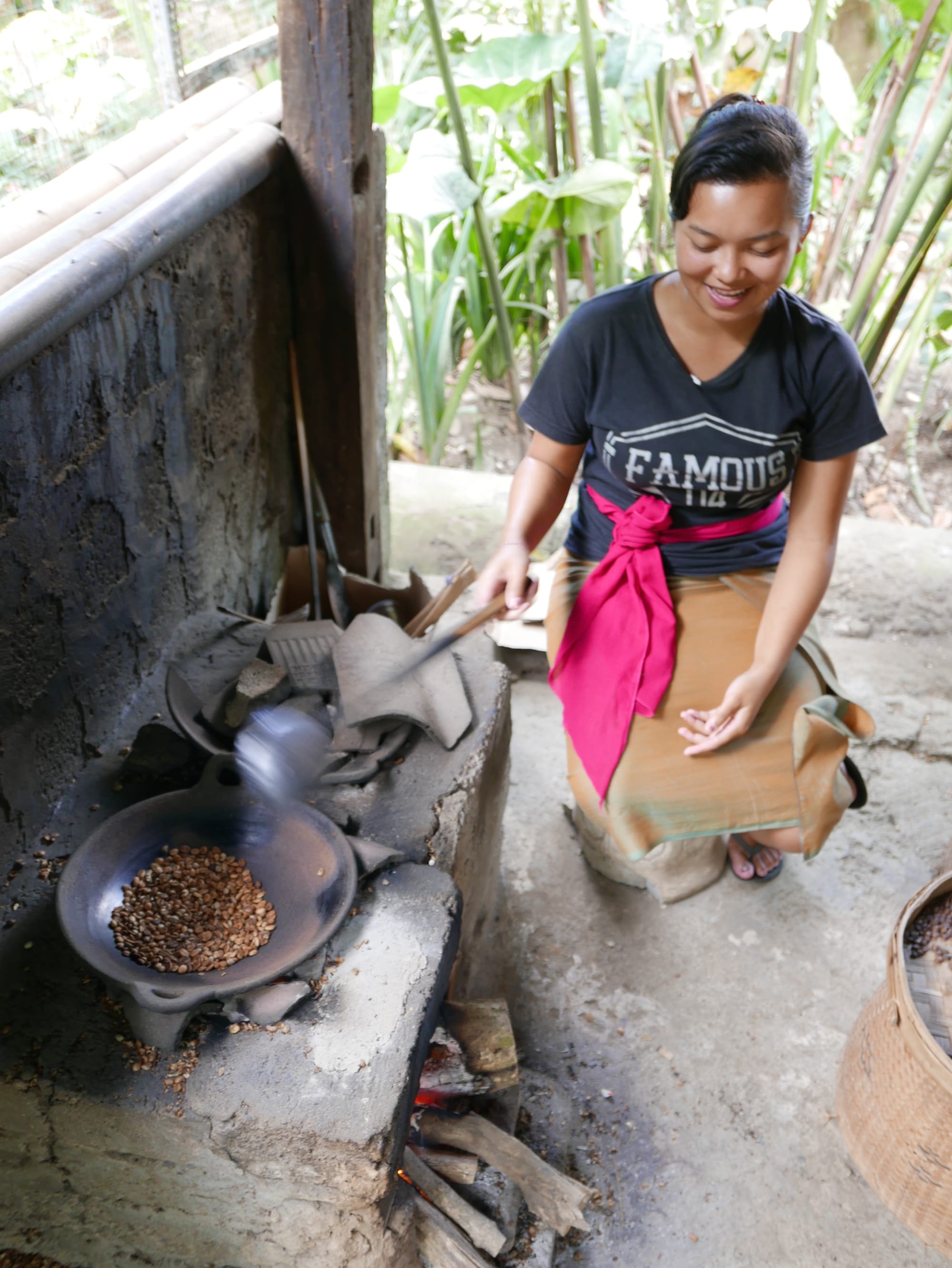
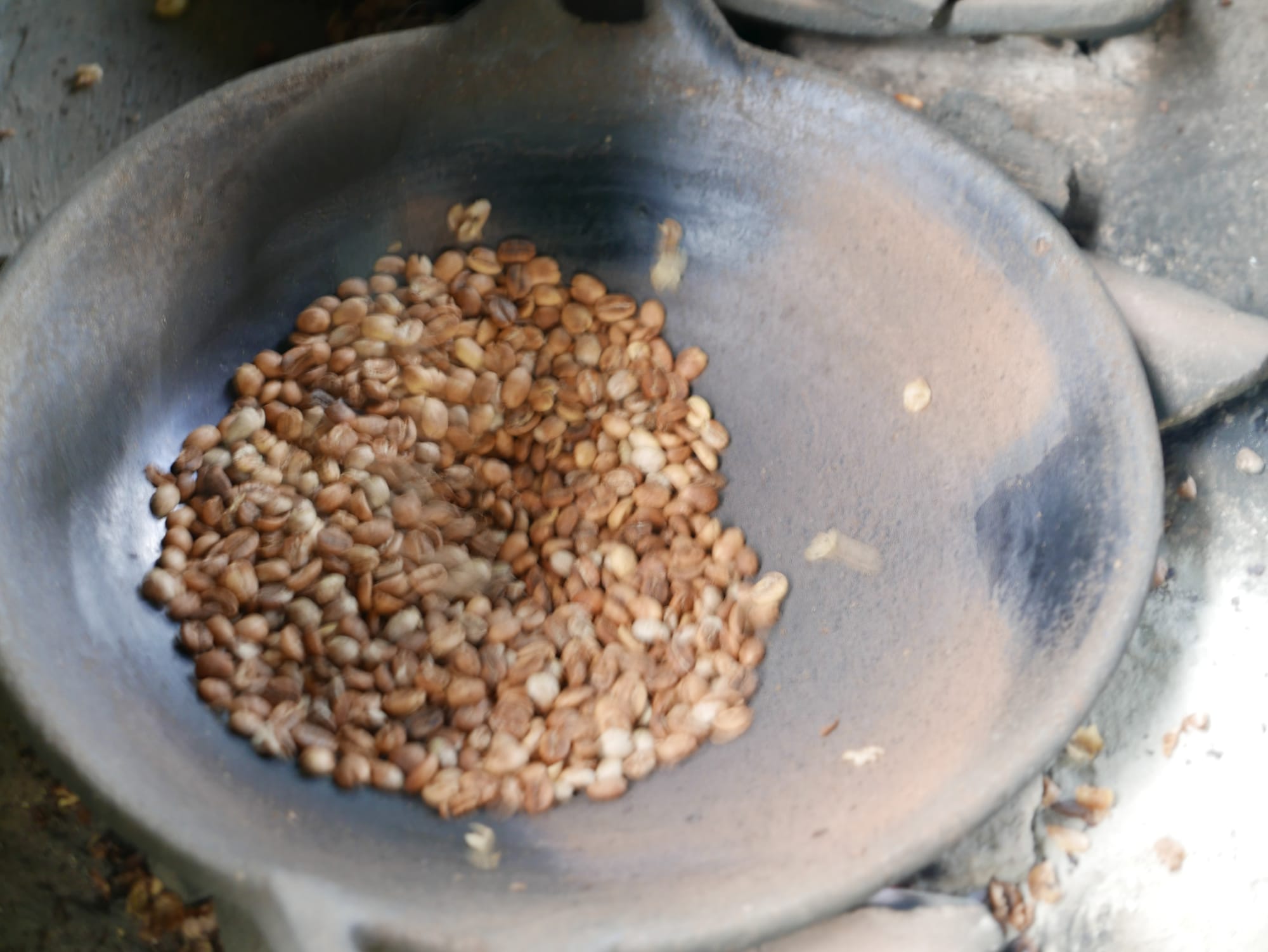
At the Coffee Luwak Luwus, it was not all about coffee as they also had a range of other plants growing on-site and a display of the various spices available locally.
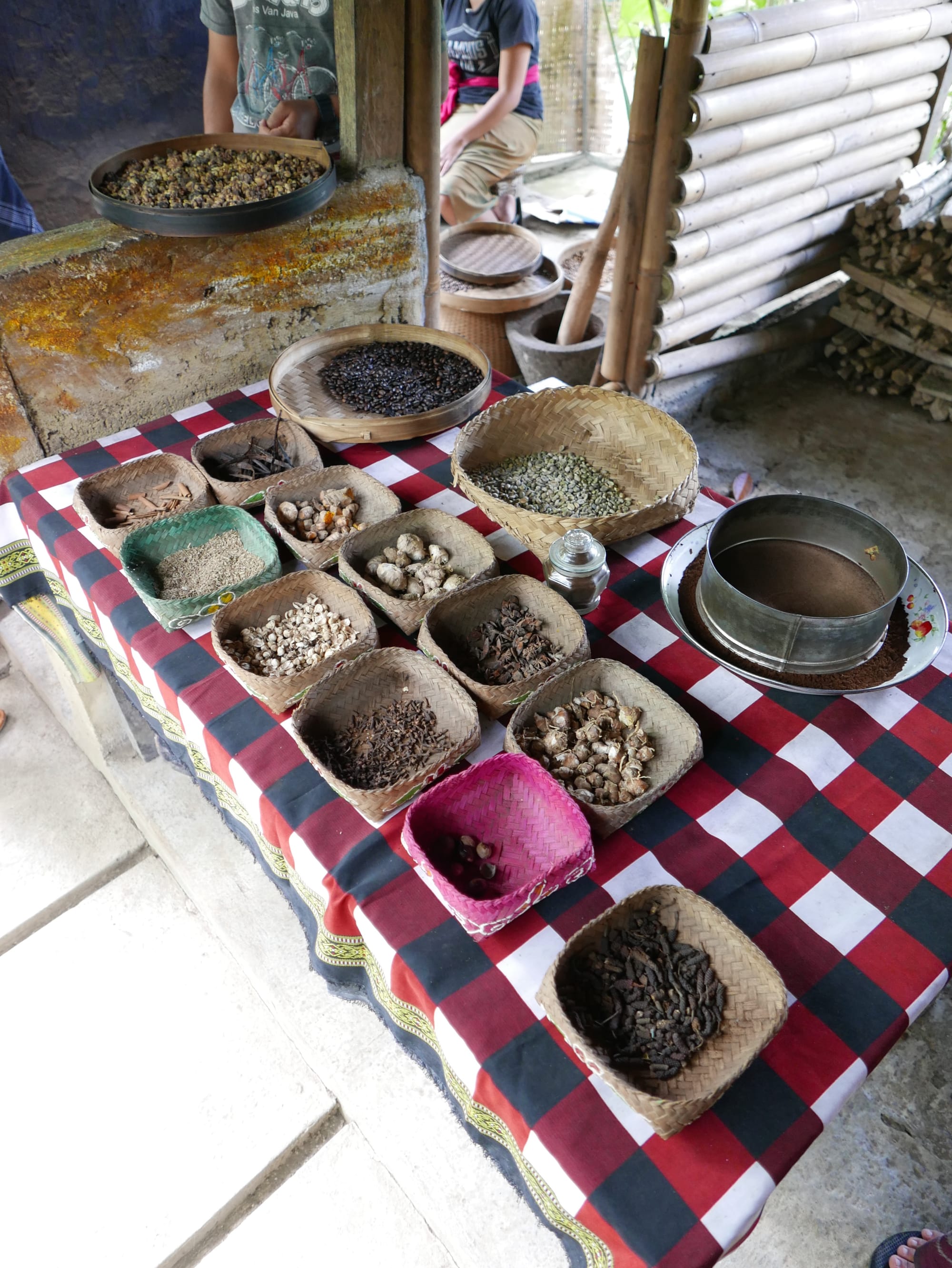
The tour was free. However, they tried to get some money from me as I had to stop on the tour to sample hot drinks made from local coffees, chocolate, and spices. All the drinks were free, EXCEPT the Coffee Luwak, which is 60,000 per cup (£2.50 GBP; $3.75 US). As I left the tour, I paid for the coffee and passed through the gift shop selling Luwak Coffee and local produce.
When I stopped to sample the coffee, I was shown the Luwak coffee and another Bali coffee. To me, both coffees in the jar looked similar, with the Luwak slightly lighter. The Bali coffee smelt more like coffee than the Luwak.
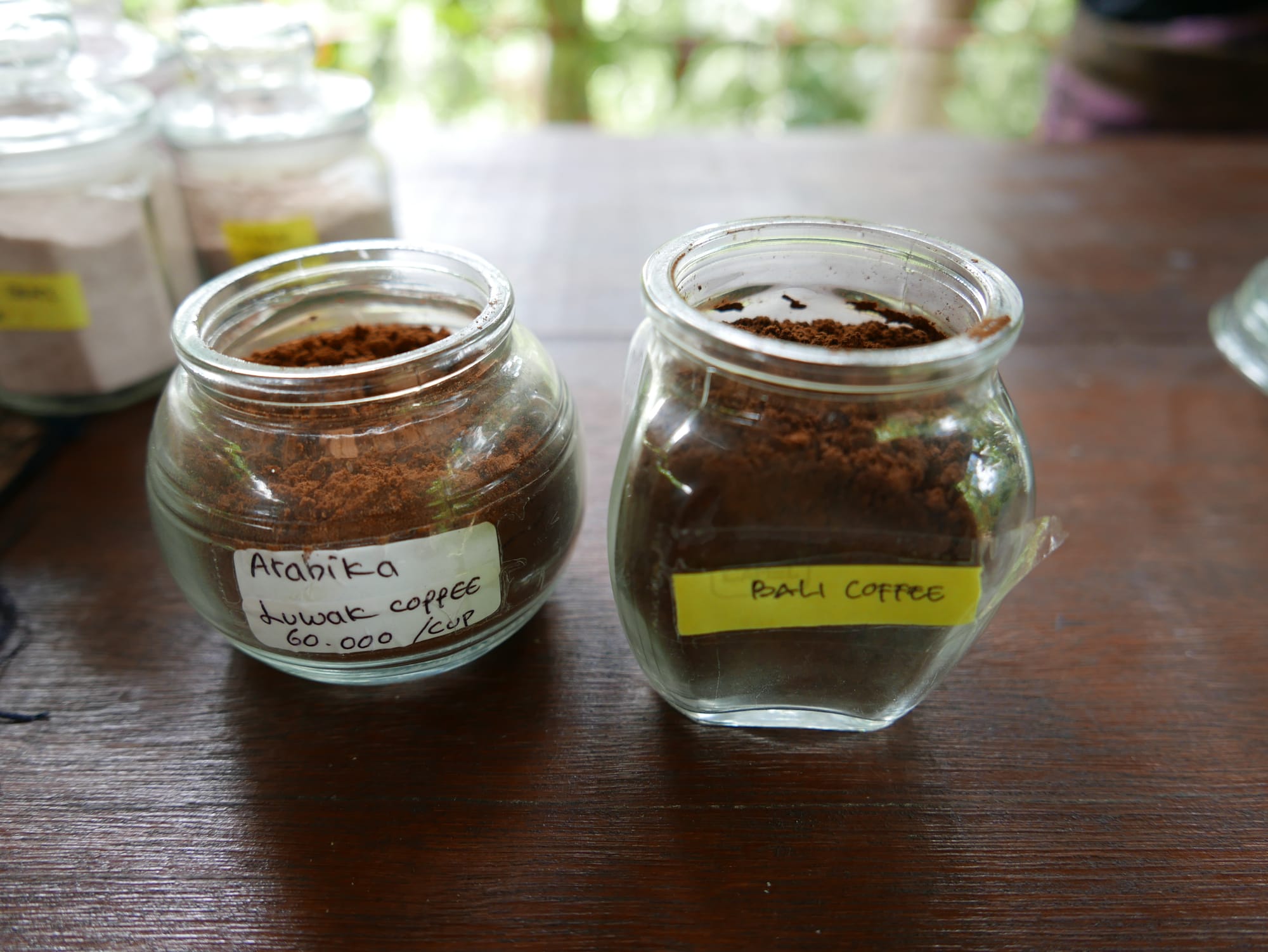
Once made (Luwak coffee on the left in the photo below), both coffees appeared similar in colour. Again, I thought the Bali coffee smelt better than the Luwak.
In the all-important taste test, the Bali coffee tasted better than the Luwak. I should add that at the time, I liked my coffee strong and without sugar; hence I would have preferred the stronger-tasting, more bitter coffee. (Due to bad food poisoning on a trip to India, I no longer drink hot coffee.)
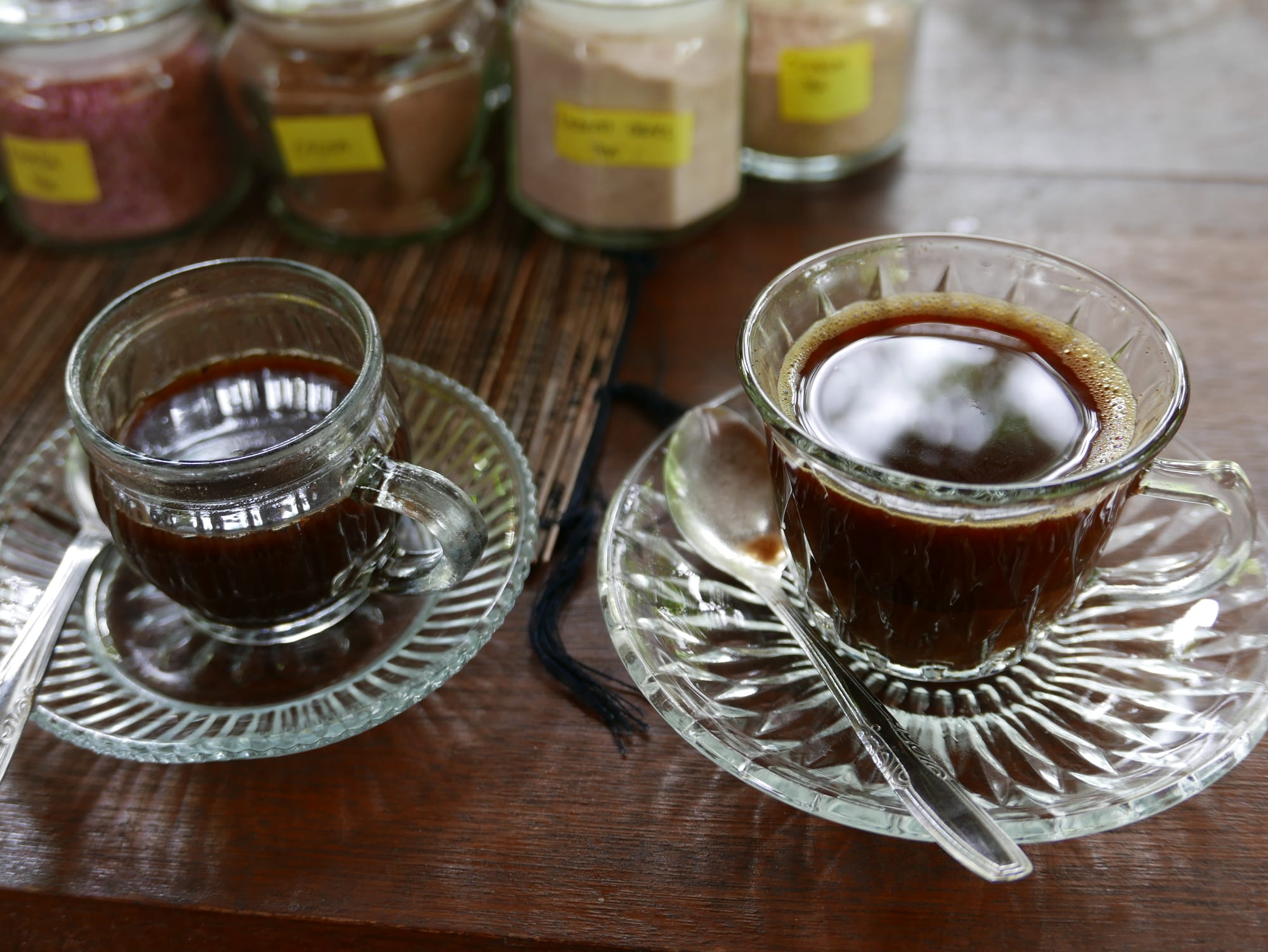
Besides tasting Luwak coffee, I also got to sample a dizzying array of other drinks.
They served a ginger tea that I thought was fantastic. When I visited Coffee Luwak Luwus, I had a really bad head cold, and the ginger tea cut straight through it. It eased my throat and cleared my head.
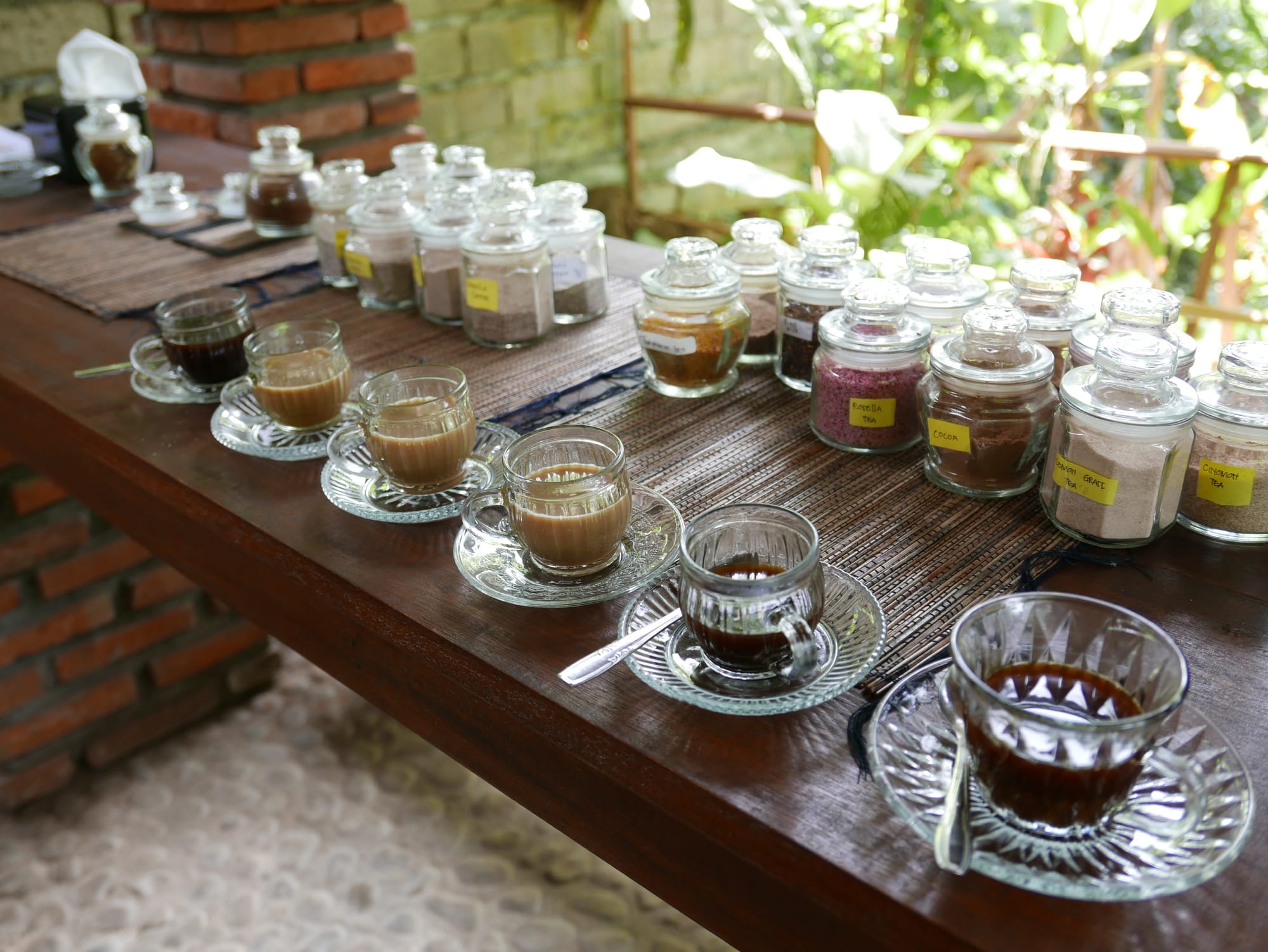
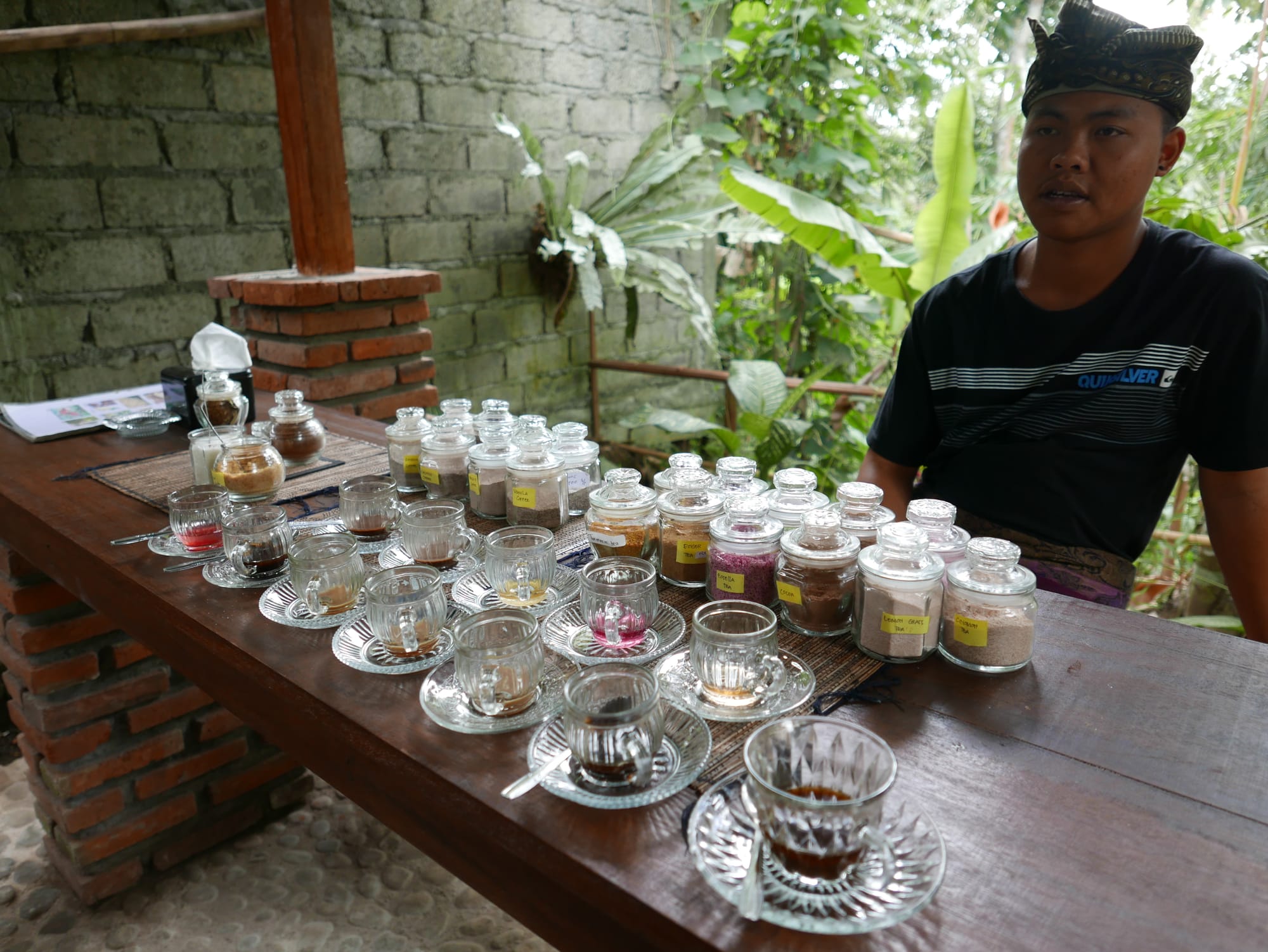
In the garden, I also saw a Cocoa or Cocao plant (Theobroma cacao).
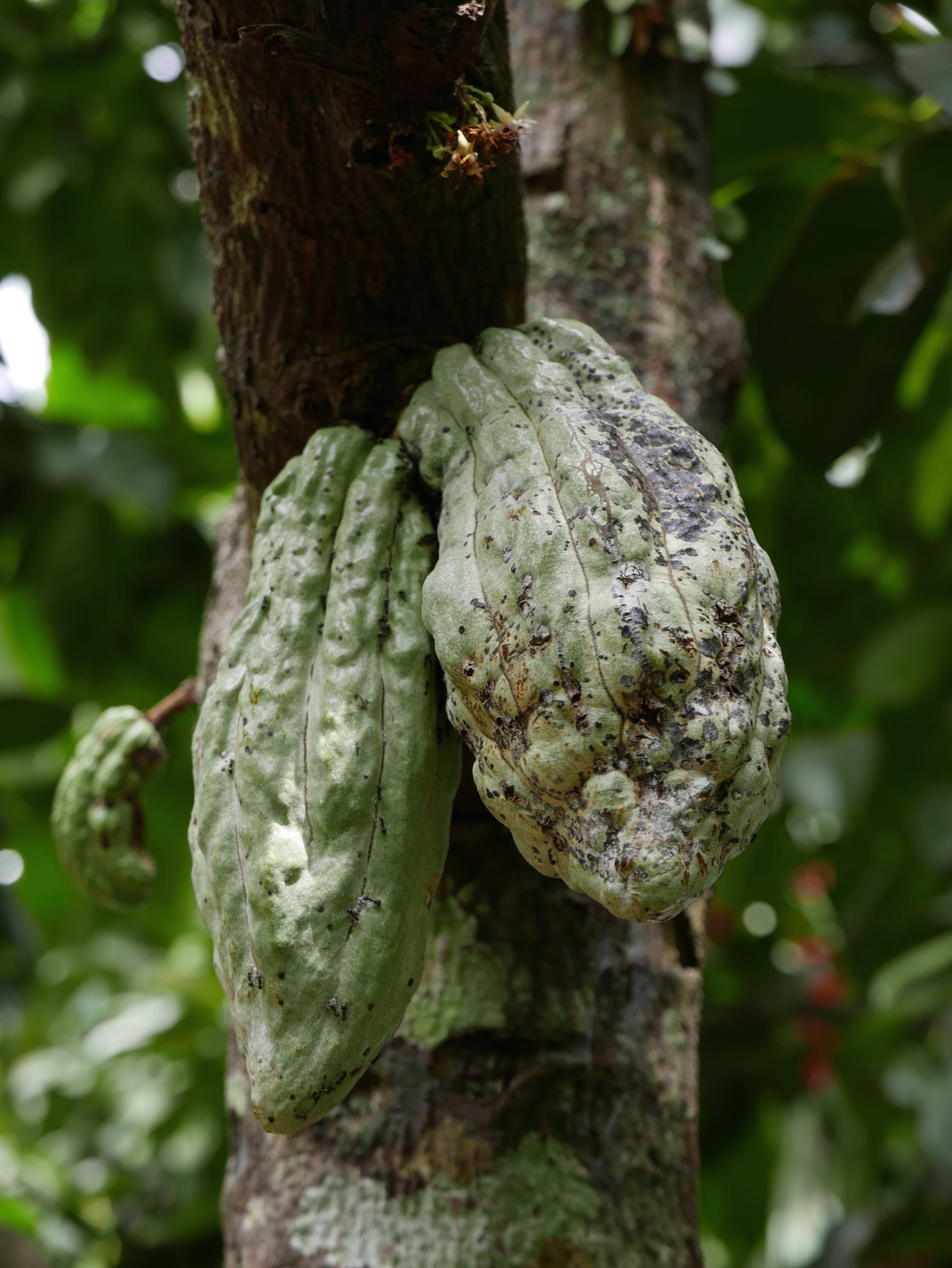
What I found interesting is the plant appeared to attract ants to guard the fruit pods.
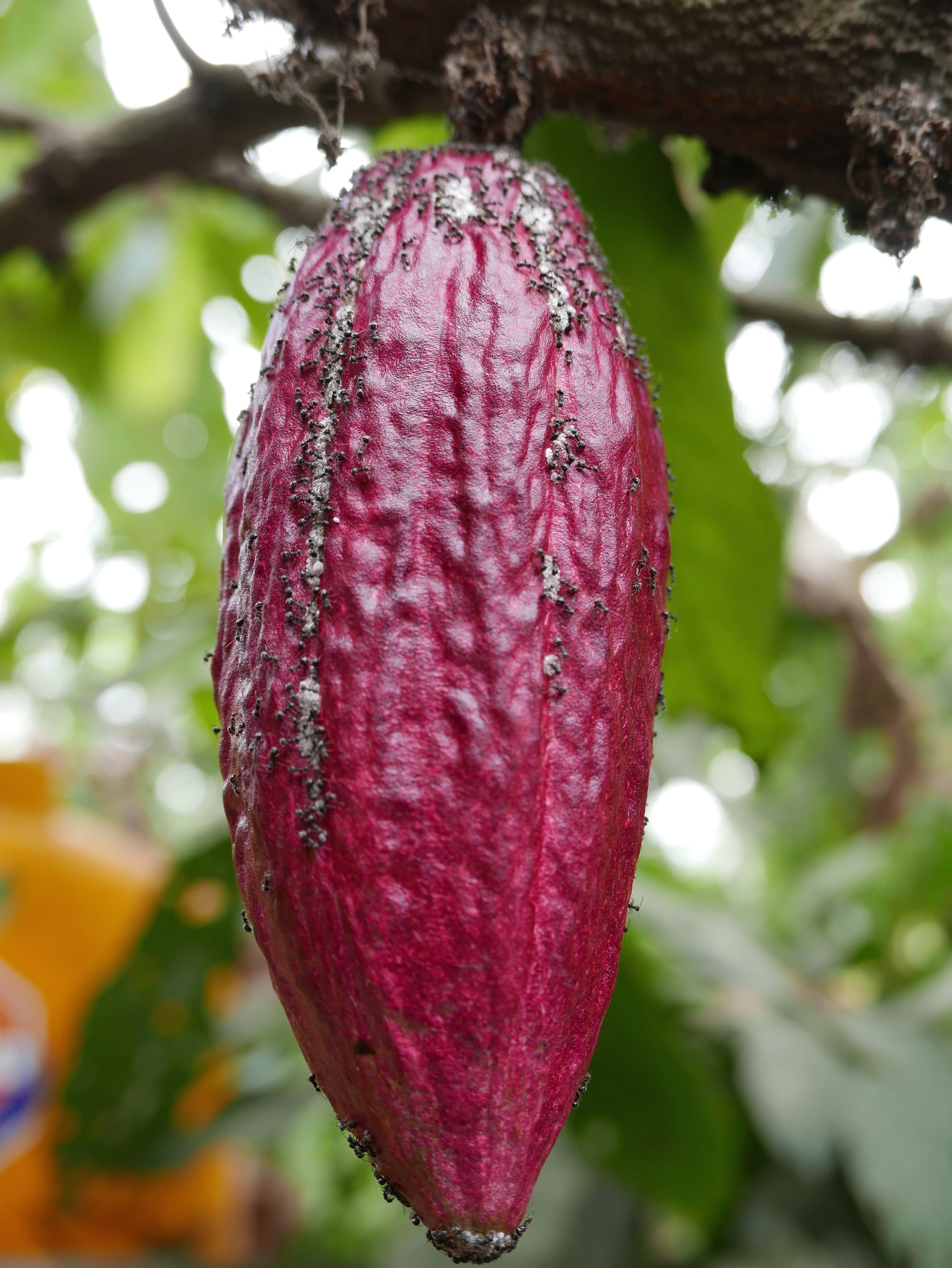
I saw something similar with Crape Ginger (Costus speciosus) at The Andaman Hotel, Langkawi, Malaysia.
There were also some baby Jackfruits (Artocarpus heterophyllus). These were very small and had a long way to go to reach full size.
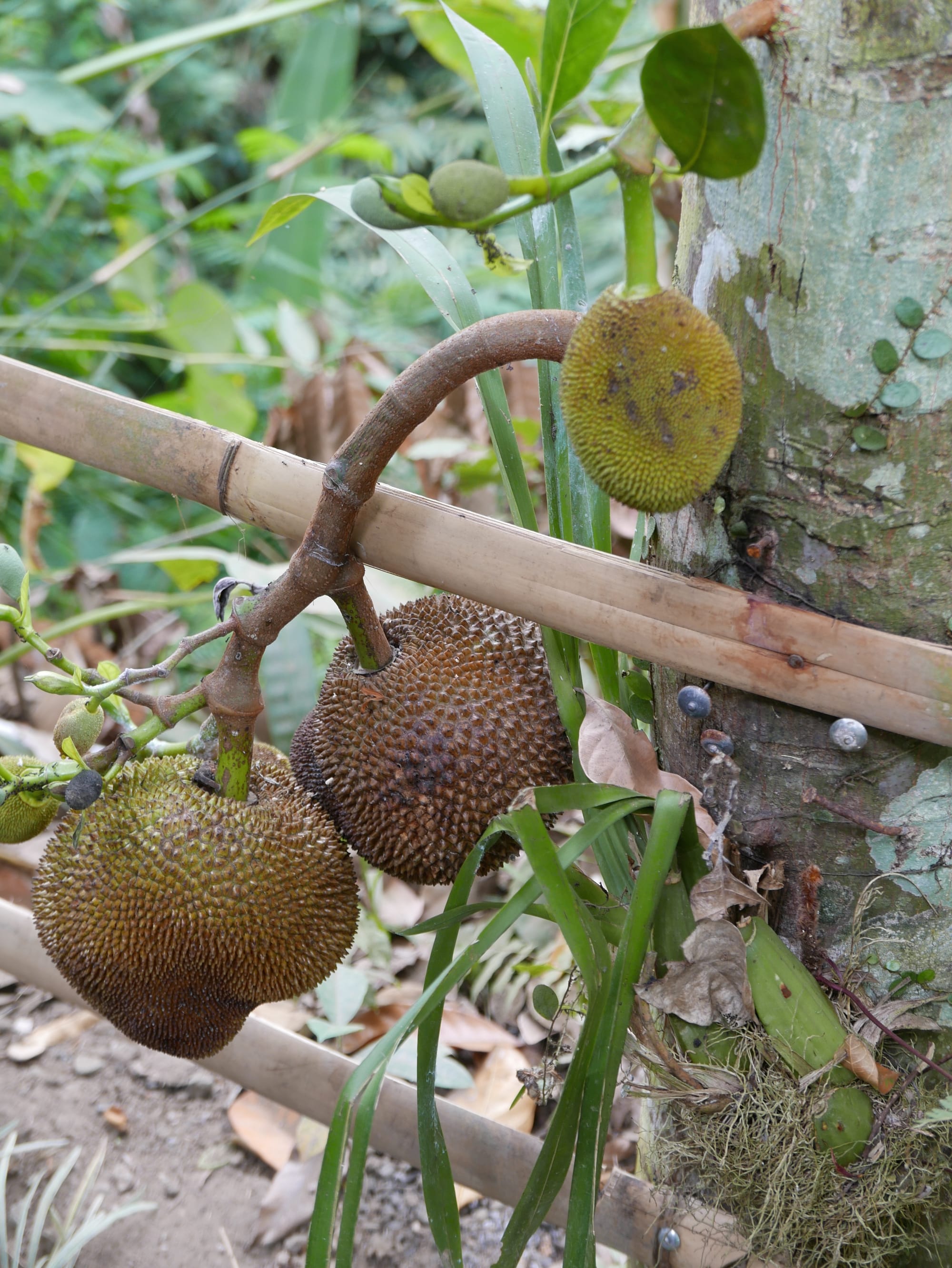
Vanilla Pods.
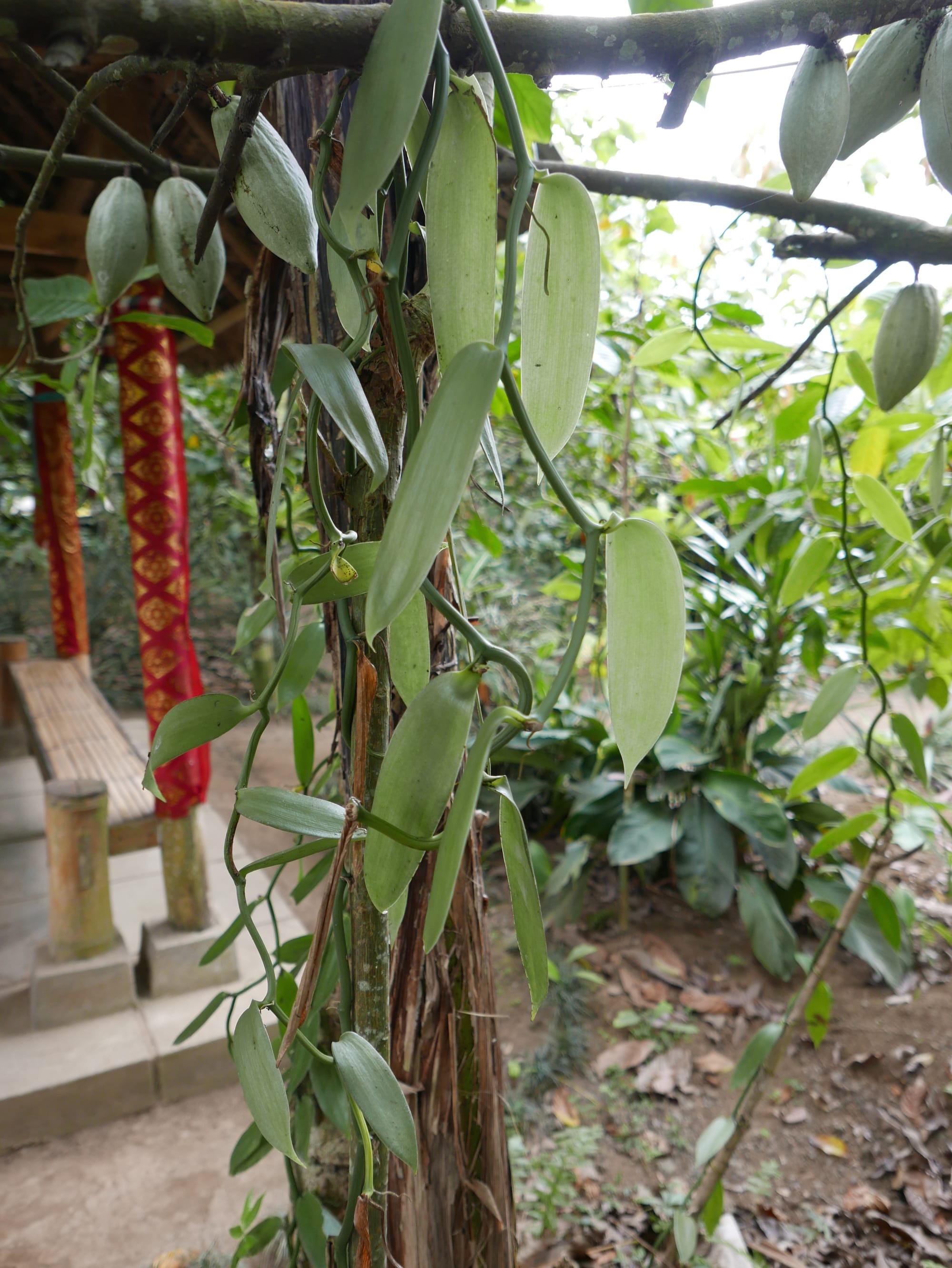
Although I am not a fan of the Luwak coffee process (I don’t mind the fact that it is ‘poop’ coffee, what I don’t like is the animals being caged and fed the coffee berries), I am glad that I stopped to have a look around as I learnt a lot about the coffee process. It was also good to see the fruits and spices of Bali growing.
FourSquare: Coffee Luwak Luwus
